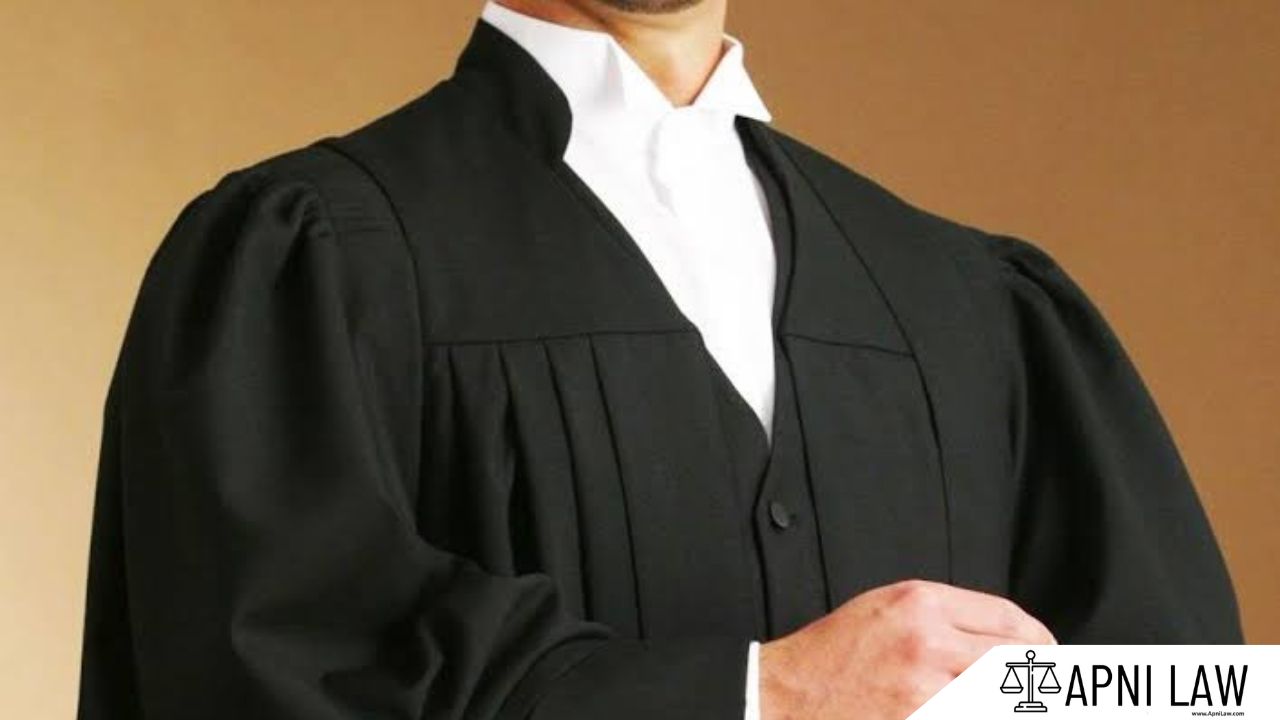Index
- Introduction
- Empowering Advocates: Rights Under The Advocates Act, 1961
- Advocates’ Legal Rights And Privileges
- Advocates’ Duties And Responsibilities Towards Clients
- Legal Precedent: Capt. Harish Uppal v. Union of India (2002)
- Upholding Legitimacy: Pratap Chandra Mehta v. State Bar Council Of M.P & Ors (2011)
- Adhering To Advocacy Standards: K. Anjinappa v. K.C. Krishna Reddy (2021)
- Conclusion
Introduction
The Advocates Act of 1961 is a pivotal legislation in India that governs the legal profession and the conduct of advocates. Its primary purpose is to uphold the standards of legal practice, ensure the integrity of the legal system, and safeguard the interests of clients. The Act establishes the Bar Council of India as the central regulatory authority overseeing legal education, admission to the bar, professional ethics, and disciplinary matters concerning advocates.
It outlines the qualifications and eligibility criteria for individuals seeking enrollment as advocates, including educational requirements and the need to pass a qualifying examination. The Act also delineates the rights, duties, and restrictions imposed on advocates, emphasizing their role as officers of the court and their obligation to uphold the principles of justice, fairness, and professional ethics. Additionally, it provides mechanisms for handling complaints of misconduct or violations of ethical standards, ensuring accountability and maintaining the integrity of legal practice in the country.
Empowering Advocates: Rights Under The Advocates Act, 1961
In India, advocates enjoy significant rights under the Advocates Act, 1961, ensuring their ability to practice law effectively and express themselves freely.
Right to Practice (Section 30) and Freedom of Expression: The term ‘right to practice’ in the legal realm refers to advocates’ exclusive right to represent clients in courts and tribunals. This right is doubly protected:
General Protection: Article 19(1)(g) of the Indian Constitution safeguards every individual’s right to engage in their chosen profession.
Specific Protection: Section 30 of the Advocates Act, 1961, grants registered advocates the right to practice law before any Indian court or body, including the Supreme Court. Recently, the Central Government reinforced this by issuing a notification, affirming that only advocates registered with the Bar Council of India can practice law in courts.
During their practice, advocates have the freedom of speech and expression, guaranteed by Article 19(1)(a) of the Constitution. This fundamental right allows advocates to speak and express themselves freely, even within a court of law, unless they violate the court’s rules and regulations.
In essence, these legal provisions empower advocates to fulfill their professional duties while upholding their rights to practice and express themselves effectively.
Advocates’ Legal Rights And Privileges
Pre-audience Rights: According to Section 23 of the Advocates Act, a court of law must grant advocates the opportunity to speak first, ensuring they are not interrupted until their statement is completed. This privilege, known as the pre-audience rule, prioritizes the right to be heard, especially for those in hierarchical positions within the legal system in India.
In India, a preferred hierarchy system governs advocacy:
- Attorney General
- Solicitor General
- Additional Solicitor General
- The Second Additional Solicitor General
- Advocate General of the State
- Senior advocates
- Other advocates
This hierarchy determines the order of advocacy within courts. Additionally, in the absence of another advocate, the Attorney General has the right to represent themselves in court. Advocates, in accordance with this hierarchy, can address the courtroom audience and represent their clients before the judge.
Right of Opposition to Arrest:
Advocates are guaranteed protection under Section 135 of the Civil Procedure Code, 1908, ensuring they are not detained while traveling to or from a court or tribunal, except in cases involving criminal charges or contempt of court. This provision recognizes advocates as officers of the court, granting them certain immunities during their professional duties.
Right to Appear in Any Court:
Under Section 30 of the Advocates Act, all advocates have the right to practice in any Indian court or tribunal, regardless of registration with a specific tribunal or court. They are allowed entry into courtrooms to observe proceedings, whether or not they are representing a client. This right extends to the Supreme Court, where advocates can also observe proceedings.
Right to See an Accused Person in Jail:
There are no restrictions on how often an advocate can visit a client held in jail, with advocates even permitted daily visits. This access is crucial as per legal standards, where an accused person is considered innocent until proven guilty. Advocates need such frequent meetings to fully grasp case details, discuss relevant documents, and effectively prepare for court arguments.
Right to Professional Communication:
Under Section 126 of the Indian Evidence Act, 1872, communication between an advocate and their client is classified as professional and confidential. This confidentiality is essential for the advocate-client relationship and is legally protected from disclosure.
Right to Protect Secrecy of Communications:
Advocates have exclusive rights under Section 129 of the Indian Evidence Act, 1872, to maintain the confidentiality of their client’s communications. They are not compelled to disclose these conversations to anyone and cannot be pressured to do so.
Right to Payment of Fees:
As per Rule 11 of Chapter 2 of Part VI of the Rules of the Bar Council of India, advocates have the right to receive payment for their services to clients. The amount may vary based on their position at the bar.
Right with Respect to Vakalatnama:
Upon signing a vakalatnama, an advocate gains the sole authority to represent their client in a specific matter. Additionally, advocates can support public prosecutors in court and submit appearance notes on behalf of defendants they don’t formally represent.
Right to Refuse a Case:
Advocates have the discretion to decline representing a client, especially in cases involving illegal activities, preserving their ethical and legal responsibilities.
Advocates’ Duties And Responsibilities Towards Clients
An advocate’s primary duty is to accept client briefs and charge fees comparable to peers within the same bar and commensurate with the case’s complexity. If a brief is declined, the advocate should provide a reasonable explanation.
Advocates must decline cases where they would act as a witness or have notice of testifying. Once engaged, advocates must represent their clients diligently, with the obligation to withdraw from a case accompanied by a good explanation and refunding any unearned fees.
The advocate’s responsibility additionally includes delivering competent advice, providing complete and honest disclosures, exercising caution in case handling, and not participating in a lawsuit where legal advice has been provided, unless withdrawing or transferring the case to another counsel.
Moreover, advocates are accountable for managing client funds, providing records upon request, and upholding confidentiality, safeguarding client privacy.
Advocates’ Responsibilities Towards The Court
Advocates are obligated to uphold the integrity of the legal system and courts, maintaining respect and dignity at all times. It is imperative that advocates avoid employing unlawful or improper methods to sway court judgments and allow impartial decisions to prevail.
Additionally, advocates must adhere to appropriate courtroom attire and refrain from wearing robes and bands outside the court setting. They are also prohibited from representing close relatives in court or tribunal matters.
Moreover, advocates must conduct prosecutions ethically, ensuring that innocent individuals are not wrongfully convicted due to their actions.
Legal Precedent: Capt. Harish Uppal v. Union of India (2002)
In the landmark case of Capt. Harish Uppal v. Union of India (2002), the Supreme Court of India established that lawyers do not possess the authority to call for a court boycott or engage in strikes.
The petitioner, an ex-Army officer, faced legal proceedings after being charged with theft during his assignment in Bangladesh in 1972. He sought a case review through a pre-affirmation application, delayed for 11 years due to a missing judge’s response caused by a lawyer’s strike.
The central question raised was whether lawyers have the right to strike.
The Supreme Court ruled that lawyers lack the jurisdiction to call for court boycotts or strikes, except in a symbolic manner. Advocates, however, have the option to peacefully protest outside court premises through press statements, TV interviews, adhering to court rules, posting notices, wearing armbands, holding dharnas, etc.
Upholding Legitimacy: Pratap Chandra Mehta v. State Bar Council Of M.P & Ors (2011)
The case addressed whether Rules 121 and 122A of the MP Rules, sanctioned by the Bar Council of India, were valid under Section 15 of the Advocates Act, 1961. The State Bar Council of Madhya Pradesh had expanded its regulatory authority beyond what Section 15 allowed. However, the court upheld the legitimacy of these rules. They had emphasized the democratic process in their formation and their alignment with the Act’s provisions.
Adhering To Advocacy Standards: K. Anjinappa v. K.C. Krishna Reddy (2021)
In this case, the appellant’s complaint against his advocate was dismissed by the Bar Council of India’s Disciplinary Committee. The complaint was initially filed with the State Bar Council of Andhra Pradesh. It raised issues of professional misconduct under Section 35 of the Advocates Act. The Supreme Court’s judgment upheld the denial of the appeal against the advocate.
Conclusion
The Advocates Act, 1961, serves as a cornerstone for the legal profession in India. It outlines the rights, privileges, and responsibilities of advocates. By empowering advocates through legal recognition and protection, the Act ensures that they can perform their duties effectively. At the same time, maintaining ethical standards and accountability. Key legal precedents, such as Capt. Harish Uppal v. Union of India, Pratap Chandra Mehta v. State Bar Council Of M.P & Ors, and K. Anjinappa v. K.C. Krishna Reddy, reinforce the principles enshrined in the Act, guiding advocates in their professional conduct. Ultimately, the balance between rights and duties fosters a fair and robust legal system. Hence, ensuring justice and upholding the rule of law.









